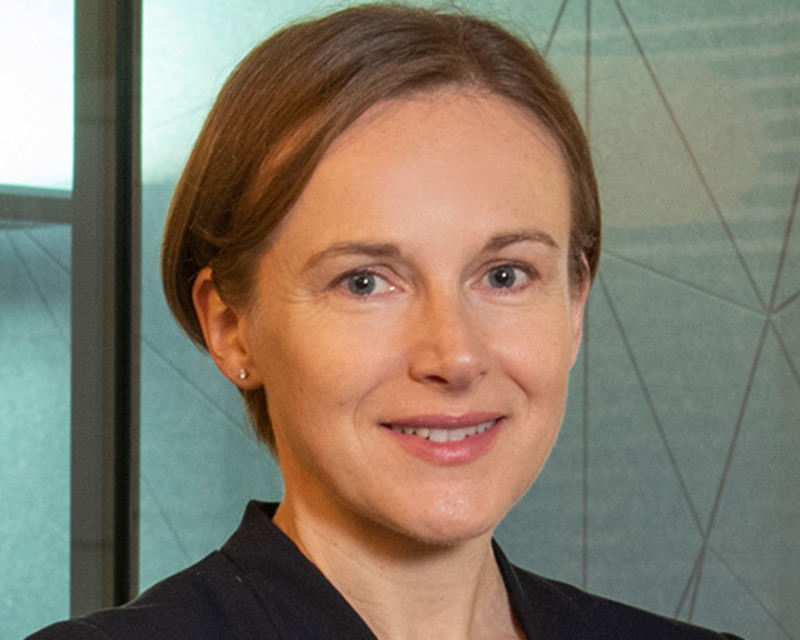

SI Dilemma: Weighing up double materiality in the chemicals industry
Evaluating investments through a double materiality lens is a challenge that SI analysts face every day. This involves considering the impacts that companies have on the world, and the impact that ESG factors have on the company. For industries such as chemicals, this poses particular difficulties in weighing up complex and potentially opposing impacts. Public opinion about chemicals science and their suitability for general use is also evolving, making investing in this sector a tough choice.
Summary
- Chemicals producers are both essential for society and a threat to it
- The SDGs can be used to assess positive and negative contributions
- Companies phasing out hazardous chemicals will be positively impacted
Chemicals are essential to produce everyday items, from food, clean water and health care products, to housing, clothing and much more. In recent years, however, we only seem to hear about the negative impacts of chemical products, such as the polluting effect of ‘forever chemicals’ like per- and polyfluoroalkyl substances (PFAS) and single-use plastics, or the biodiversity impact of pesticides.
Even the UN recognises that “a substantial use of chemicals is essential to meet the social and economic goals of the world community”. Yet we have now reached the point where the planetary boundaries for novel entities have been exceeded – meaning that we now create more chemicals than our planet can deal with.
The dilemma is that many useful chemicals have properties that are hazardous to the environment and human health, and our use of these products over the last century has outpaced our understanding of their impacts. Over 350,000 synthetic chemicals have been developed, and their production is expected to triple by 2050.
Governments around the world now recognize that more regulation is needed to manage chemicals and hazardous chemical waste, and this will have significant financial impacts for the companies producing and using them.
Biggest shake-up for decades
The EU’s Chemicals Strategy for Sustainability published in 2020 is considered the biggest shake up of the chemicals industry for decades. It is part of the European Green Deal, a package of cross-sectoral policy initiatives targeting a green transition and carbon neutrality by 2050. Among the goals are:
Banning the most harmful chemicals in consumer products and phasing out PFAS
Enhancing risk assessments by accounting for the cocktail effect of chemicals
Establishing a simpler ‘one substance, one assessment’ process
Promoting resilience in the supply and sustainability of critical chemicals
Raising standards globally and only investing in chemicals that are safe and sustainable.
The strategy will impact one-third of the chemicals in common use, affecting everyday items such as cleaning products, cosmetics, paints and plastics. Market estimates suggest products worth around EUR 70 billion in revenue, or about 12% of the European chemicals market, will be banned by 2040, while others will be reformulated or more stringently regulated.
The sustainability lens
At Robeco, when evaluating the sustainability impact of a companies, we first focus on the inherent impact of its products on the Sustainable Development Goals (SDGs), and then secondly on the impact of its operations, in keeping with the EU sustainability taxonomy.
We consider chemicals that make a direct positive contribution to the SDGs positively, such as those facilitating renewable energy, clean water, medicines and access to nutritious food. We also support safer alternatives to hazardous substances currently in use, such as sustainable agriculture or products containing recycled and recyclable materials. Chemical products that contain substances of high concern are viewed negatively.
What makes the assessment complex is the sometimes conflicting impacts, such as the use of fertilisers to increase food production. This can have a positive impact on reducing hunger, but the excessive use of fertilisers can be damaging to biodiversity.
And while bio-based chemical feedstocks may reduce climate-related emissions, they can negatively impact biodiversity – an effect known as ‘burden shifting.’ A holistic view of all impacts is needed to minimise this effect and avoid causing significant harm, an approach that we take in our SDG Framework.
Get the latest insights
Subscribe to our newsletter for investment updates and expert analysis.
Research helps mitigate risks
An additional complication is the imperfect understanding of the true impacts of chemicals. The cautionary tale of PFAS illustrates unintended consequences. PFAS have been widely used in household products such as stain repellents, paints and coatings since the 1940s, enhancing desirable water-repellent properties and extending the useful lifespans of other products.
While initially thought to be harmless, we now know that their use over many decades has led to a build-up of PFAS in the environment. The impact of this and the threats to human and animal health are still being discovered. As analysts we know that unintended consequences cannot always be avoided. We can try to minimise their impact by keeping up to date on the science, and regularly checking that our evaluation frameworks reflect the latest knowledge.
We also align with leading industries bodies such as the Chemsec Investor Initiative on Hazardous Chemicals (IIHC) which encourages producers to increase their transparency and stop the production of persistent chemicals such as PFAS. About 50 institutional investors including Robeco, with a collective USD 10 trillion in assets under management, belong to this initiative.
The financial lens
Financial and sustainability materiality are two sides of the same coin. Understanding the impacts that a company has is key to understanding how this will affect their future growth, profitability and risk. When evaluating chemical companies, we focus on product impacts and stewardship, climate strategy, and operational eco-efficiency – particularly in hazardous waste management and corporate governance.
We view positively the companies that have already started to phase out hazardous chemicals, that are working on safer alternatives, and that have good management of their operational impacts. These are the companies that stand to benefit from changes in the industry and market demand, a trend that is driven by more consumer-facing companies.
We also look for good governance and transparency, which helps us to mitigate the risk of future problems. Companies that are lagging in adapting to the changing market are likely to face higher adaptation costs in future, as well as loss of market share.
Bringing it all together
The extent to which the dual materiality perspectives influence our investment decisions ultimately lies with the portfolio manager at Robeco. SI analysts identify the potential sustainability and financial impacts and try to estimate the likely magnitude and time frame, but they don’t try to assign weights to sustainability versus financial impacts.
Instead, each strategy’s investment approach drives the final decision, with some hard constraints where necessary, to ensure that no companies causing significant harm end up in our most sustainable funds. It’s not easy work – sustainable investing isn’t a ‘silver bullet’ – but we’re glad that we do it to drive greater sustainability in contentious industries such as chemicals.
Important information
The contents of this document have not been reviewed by the Securities and Futures Commission ("SFC") in Hong Kong. If you are in any doubt about any of the contents of this document, you should obtain independent professional advice. This document has been distributed by Robeco Hong Kong Limited (‘Robeco’). Robeco is regulated by the SFC in Hong Kong. This document has been prepared on a confidential basis solely for the recipient and is for information purposes only. Any reproduction or distribution of this documentation, in whole or in part, or the disclosure of its contents, without the prior written consent of Robeco, is prohibited. By accepting this documentation, the recipient agrees to the foregoing This document is intended to provide the reader with information on Robeco’s specific capabilities, but does not constitute a recommendation to buy or sell certain securities or investment products. Investment decisions should only be based on the relevant prospectus and on thorough financial, fiscal and legal advice. Please refer to the relevant offering documents for details including the risk factors before making any investment decisions. The contents of this document are based upon sources of information believed to be reliable. This document is not intended for distribution to or use by any person or entity in any jurisdiction or country where such distribution or use would be contrary to local law or regulation. Investment Involves risks. Historical returns are provided for illustrative purposes only and do not necessarily reflect Robeco’s expectations for the future. The value of your investments may fluctuate. Past performance is no indication of current or future performance.
























